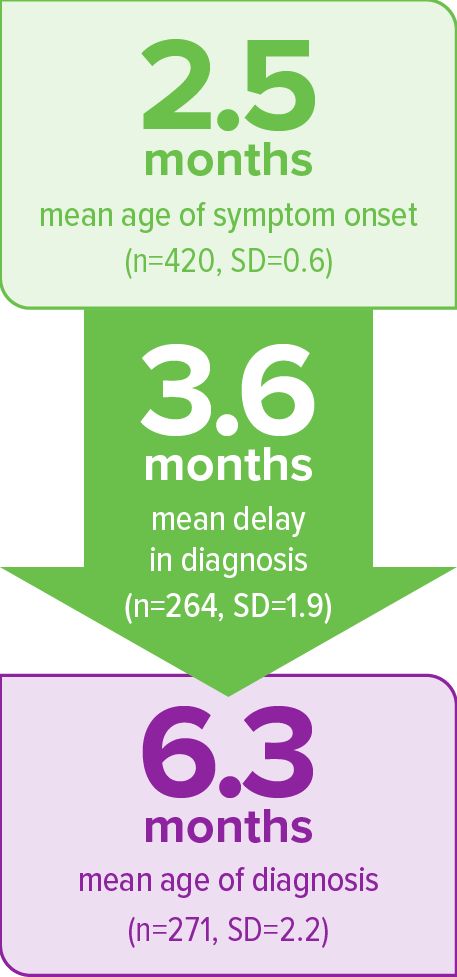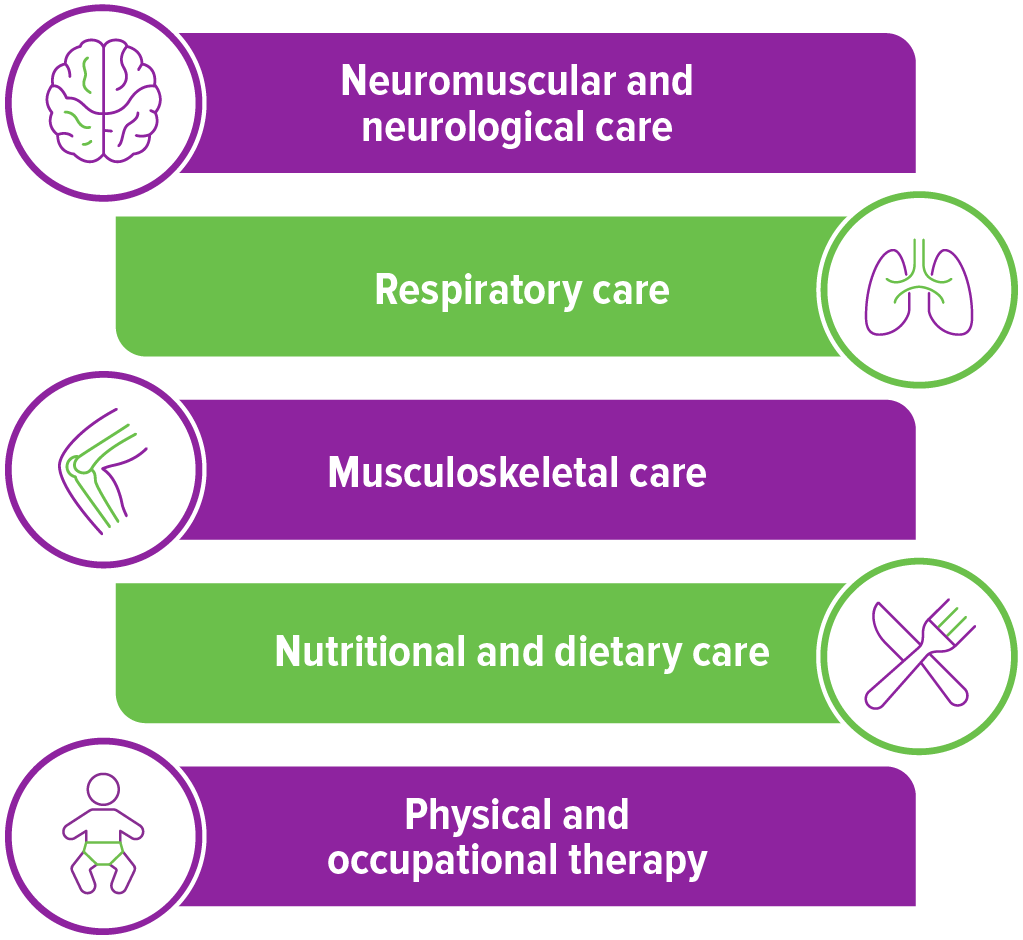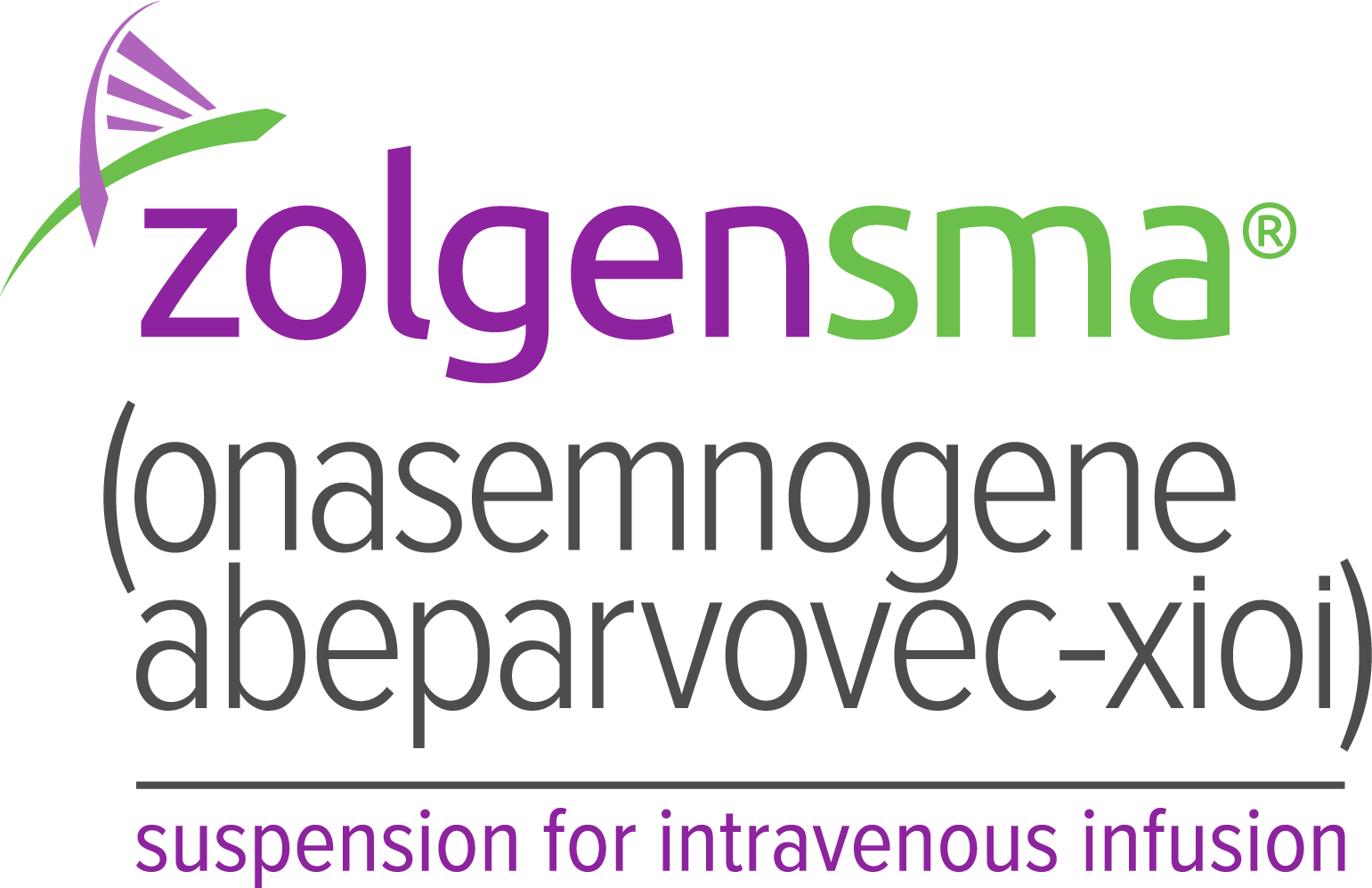Healthcare professionals play an important role in identifying spinal muscular atrophy (SMA)
Until 100% of newborns are screened for SMA in the US, healthcare professionals must be vigilant in identifying SMA through signs.1
Untreated SMA has historically been the #1 genetic cause of infant death. SMA Type 1 is a devastating disease that causes the majority of patients to die before the age of 2. Delayed diagnosis and treatment allow the disease to progress irreversibly. With timely treatment, patient outcomes can be drastically different from the natural history.2,3
Identifying SMA early is critical for optimal outcomes, especially in SMA Type 1, due to rapid motor neuron loss3
In one study before newborn screening implementation, delay in diagnosis was 3.6 months1
Diagnosis delays are common for patients with SMA Type 1

SD=standard deviation.
Extracted or calculated data from a systematic literature search and analysis of 21 studies. All estimates were weighted by the number of patients.
The impact of immediate referral and treatment
If you suspect or recognize the signs of SMA, it is essential you refer your patient to a relevant specialist who can promptly diagnose and treat SMA. Early action helps prevent permanent motor neuron loss. Due to the progressive nature of SMA, patients who are treated earlier often see better outcomes.3
Pediatric healthcare professionals, physical therapists, pulmonologists, and genetic counselors are among those who may encounter an undiagnosed patient with SMA in their practice.4,5
Suspicion of SMA should trigger immediate action. Flag your referral for urgent consultation.
Unsure where to go?
Ongoing care requires a multidisciplinary care team
Even after disease-modifying treatment, patients with SMA may need respiratory, nutritional, and musculoskeletal support. The team will vary from patient to patient, but a coordinated team of specialists can help monitor the patient’s SMA.4,5
It is recommended that a neurological expert, such as a pediatric neurologist or neuromuscular specialist, coordinate the care of the patient, as they will likely have the most experience with anticipating needs.4
While the specific needs and support levels of patients differ, part of the ongoing care can include an assessment of motor function, which may include regular sessions with a physical therapist and possible use of braces. Additionally, nutritionists can be involved to monitor weight and nutrient intake, paying careful attention to calcium and vitamin D for bone health.4

